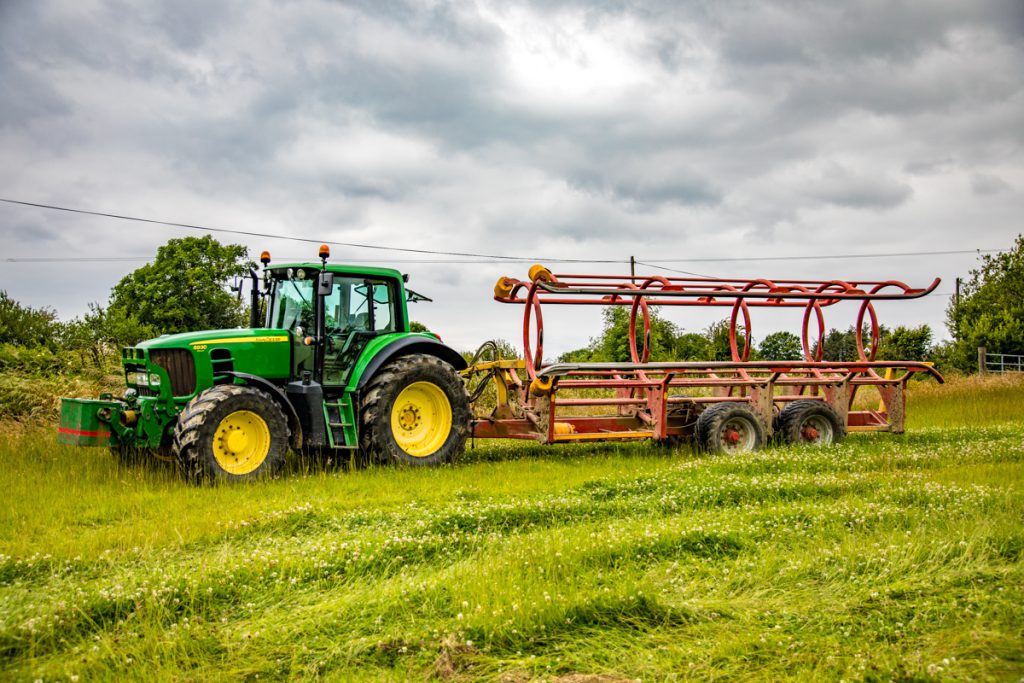Farmers in Co. Wexford could be forced to source fodder outside the county this year due to the drought, according to agricultural contractor Ciaran Creane.
Operating the contracting business alongside a tillage enterprise with his father Kevin near Fethard-on-Sea, New Ross in Co. Wexford, Ciaran explained that the recent drought has stunted grass growth and thrown the regular working calendar out of kilter.
Speaking to AgriLand, Ciaran outlined that the contracting side of things has slowed down because of the weather.
“We’re doing little bits of second-cut silage and we are getting the combine ready for the harvest.
We were doing a bit of irrigating for a while, but lads gave up on it after a couple of days – they were hoping it would rain after that; we did see an improvement though.
“It hasn’t rained properly here in about 10 or 12 weeks; it’s really windy as well and that’s drying the place out more so,” he said.
At the moment, the contracting outfit is preparing to begin harvesting winter wheat.
But, normally, the fleet would also be busy harvesting second cuts of silage. However, Ciaran explained that a lot of farmers have been forced to graze ground initially set aside for a second cut of silage.

Continuing, he said: “There are a lot of lads feeding first-cut silage already. I know lads who would normally have 500 or 600 bales made at this time of year, but now they have nearly none.
“If we get a winter like what we got last year, I don’t know what we’ll do; farmers haven’t half as much fodder as they had going into last winter and they just got through it.”
‘No one likes giving out about fine weather’
While the prolonged spell of fine weather has been welcomed by some, it has caused plenty of problems, Ciaran added.
“No one likes giving out about fine weather; but it’s a disaster now. We could do with about a week of rain; even at that, it would take another six to eight weeks for the grass to be ready to cut.
You could see lads drawing fodder into Wexford this year, instead of out.
The Creanes tackle pit silage, maize and baled silage – alongside slurry work and a list of other tasks.
